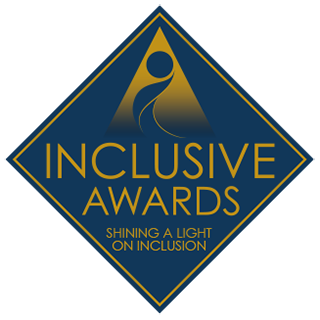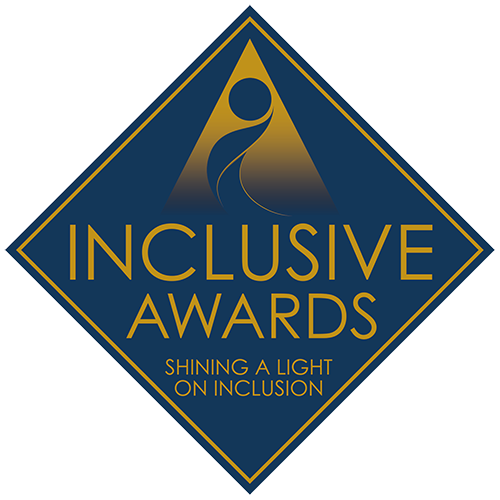Future Leaders UK started 5 years ago by a group of teachers who were becoming increasingly concerned about the polarisation among young people they were seeing in their schools, particularly post-Brexit. They knew they had to do something to ensure that all young people feel valued and celebrated. And so Future Leaders UK was born to support young people from marginalised backgrounds to be proud of who they are and embrace their diversity as a superpower. The young people are then empowered to lead social action projects in their local communities, advocating for equality and diversity.
Future Leaders began by supporting just 40 students in East London. Seeing the transformative impact of our pilot programme, we knew we had to widen our reach. Today, over 5,000 young people who face additional barriers are supported by Future Leaders.
Young people are at the heart of the design and delivery of our programme, and our youth advisory board plays an active role in every part of the decision making process. This ensures that it is a programme for young people, by young people.
Through an intersectional approach, we support those facing the most significant barriers, with our beneficiaries meeting at least 4 of the 9 following criteria: BAME, white working class, in care, young carer, eligible for free school meals, refugee/asylum seeker, special educational need (including neurodiversity), and first in family to access further education or training. This approach allows us to engage with often overlooked young people, delivering support to those who need it most.
For our impactful multi-strand work, we are proud to have been awarded with the Municipal Journal Award in the transforming lives category, the Mayor’s Award for Community Leadership, UK Parliament Award for Community Project of the Year, the Redbridge Education Award for Champions of Change, and the Pride of Walthamstow Community Cohesion Award.
What we have achieved:
Since 2019, we have been able to support over 10,000 young people from marginalised backgrounds, developing their confidence, skills, and aspirations. And through empowering our beneficiaries to advocate for equality and diversity in their communities, the number of indirect beneficiaries that have benefited from our work is over 100,000.
In preparing young people to challenge hate, we deliver a bespoke series of workshops and guest-speakers based on current topical challenges. For example, following the conflict of the Middle East from October 7th, we delivered a programme to combat the rise of anti semitic and islamophobic hate. This involved bringing together Jewish and Muslim students to bridge divides in the community. We facilitated Palestinian and Israeli peace activists to contribute to these sessions to encourage understanding across different communities. This empathy-first method prevents prejudiced views and ensures a humanist approach. This is one example of the kinds of hate we successfully educate our young people to stand against, leading to 95% of our young people feeling prepared to challenge intolerant views in others. After a visit to our programme, Sadiq Khan, the mayor of London said that “this programme does fantastic work empowering young Londoners to both identify and challenge hate in all its forms.”
We also support young people in securing ambitious post 18 education and career pathways. This involves our partnership working with leading universities who we work with to prepare our young people to submit competitive applications. We also work with leading corporates who provide work experience opportunities, helping our young people access spaces that have previously been inaccessible.
For our multi-strand work, we were awarded the Municipal Journal Award in the transforming lives category, the Mayor’s Award for Community Leadership, and the UK Parliament Award for Promoting Democracy.
Why we have been selected:
ur organisation’s intersectional approach and work to support young people from BAME, LGBT+, in-care, disabled, and Religious Minority backgrounds places us in a unique position to be selected for the multi-strand award.
Our commitment to diversity begins with our organisation’s structure, as our leadership and staff all come from BAME backgrounds, with our Founder being proudly LGBT+ and neurodiverse. This allows us to create a safe space where underrepresented young people are encouraged to engage and develop. We are also an accredited diverse supplier, demonstrating that our work is culturally-sensitive.
Through this multi-strand methodology, we were able to empower young people with the ability to reach successful pathways they otherwise wouldn’t have had access to. Notably, working with Sarah, a young woman from a Muslim background who was diagnosed with sensorineural hearing loss, we develop her confidence, skills, and aspirations. As a result, Sarah was able to receive a placement for her dream course, securing a place at the University of Cambridge for an undergraduate degree in History. While Sarah is a single case study, every young person on our programme is left more confident and able to achieve their aspirations than before. This is evidenced by the admission tutor at the University of Oxford, who said that the programme “engages pupils with a fantastic range of academic and enrichment opportunities making them strong candidates for institutions like the University of Oxford.”
Furthermore, we embed our mission of having a more diverse and equal society in the young people we work with, developing an understanding of intersectionality in the next generation. This is achieved through our social action projects, supporting young people to deliver their own projects which empower diverse backgrounds and break down the barriers caused by discrimination and prejudice.
Impact:
To measure the success of our work, we had the Institute of Strategic Dialogue (ISD) and Queen Mary, University of London conduct two independent studies. The studies confirmed that “both the qualitative and quantitative data point to significant and deeply meaningful impacts for the participants and for the community from which they come”. Notably, by analysing our cohort, the ISD report found that:
-98% felt equipped to make their community a better place
-95% felt prepared to challenge intolerant views in others
-Those on the FL programme were 82% more likely to initiate social change within their community. Through their social action projects, our young people have impacted the lives of over 100,000 beneficiaries
-97% of participants felt more positive about their future after the programme.
-93% of beneficiaries reported having a clearer idea of how to achieve their career aspirations.
The report also found that the findings were mirrored by the parents and teachers associated with the young people, 97% of whom confirmed these positive outcomes.
The report conducted by the Youth Resilience Unit at Queen Mary University of London found that the programme had a significant impact on young people’s self-esteem and mental health, making them much more confident. The report confirmed that the programme was providing a ‘sense of belonging’ and strengthened their ability to overcome barriers caused by discrimination and prejudice. These outcomes were associated with the active components of our programme, such as the visit to Parliament which had a very significant impact on our beneficiaries, increasing their socio-cultural capital. Our beneficiaries also “enjoyed the exposure to a range of individuals with different experiences, especially around adversity or trauma”. This allowed them to learn how to overcome the barriers they face in their daily lives, especially impactful when coming from an individual with shared lived experiences they can relate to.
Initiatives:
Future Leaders UK delivers a 12 month programme facilitating a holistic package of activities, empowering underrepresented young people to be proud of their diverse backgrounds and overcome any barriers caused by prejudice. As part of our programme, we engage local communities with the following activities.
1. Development workshops: Our interactive workshops develop our beneficiaries’ confidence, ability to overcome imposter syndrome, and foster them to become champions for equality.
2. Guest speaker programme: We invite professionals who reflect the young people we support, sharing insights into how they overcame challenges and attained the positions our young people aspire to.
3. Enrichment visits: We provide our beneficiaries with visits that build their social and cultural capital, and teach them how to use their voice to create positive change. This includes visits to City Hall, 10 Downing Street, and Parliament.
4. Mentorship: We provide mentorship support through a three-pronged approach: working with professional mentors, aiding them in their career next steps; university and apprenticeship support, helping our beneficiaries in their applications for further education and work experience; and a peer-to-peer mentorship programme.
Additionally, we support our beneficiaries in developing their own social action projects. A notable example is Sulayman, who was inspired to start ‘Stronger Together’, a safe space that uses the medium of mixed martial arts to bring together young people of different ethnicities, religions and sexual orientations who wouldn’t traditionally engage with each other. Sulayman’s initiative has led to new connections among young people, a support structure for those struggling with mental health, and a more cohesive community within East London. In the last 2 years, ‘Stronger Together’ has engaged over 400 beneficiaries, effectively compounding over impact.
How this award will help us?
Despite the success we have achieved over the past 5 years, we are a relatively young and small organisation. However, we are passionate about supporting more young people across the country, and we feel that winning this national award would give us the platform we need to do this. We are particularly interested in expanding our work to areas of high deprivation that don’t receive as much attention as London and the South East.
The heightened exposure by winning this award would attract the attention of potential partners, who share our organisation’s values and mission. With this additional support, we would be able to deliver on our ambition of supporting young people from marginalised backgrounds across the country.
Additionally, the National Diversity Award ceremony would provide an invaluable networking opportunity. By connecting with other organisations, influential individuals, and key stakeholders in the diversity and inclusion space, we aim to forge strategic partnerships and alliances that further advance diversity and inclusion. These connections could lead to joint initiatives, knowledge sharing, and collective action to address systemic issues affecting diverse communities.
On a more intrinsic level, receiving the National Diversity Award would serve as a source of inspiration and motivation for our micro team, many of whom have given up their day jobs to volunteer and make this impact possible. The award would also reaffirm our organisation’s sense of purpose and the importance of our mission, instilling a renewed sense of pride and determination among staff, volunteers, and beneficiaries.



